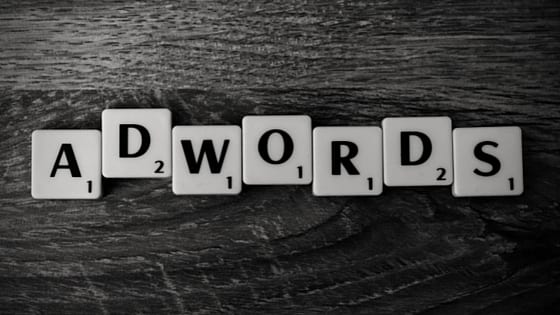Thanks go to the BBB members who provided their AdWords questions in response to my post. I’ve answered many of them in this article.
To set up a cost effective AdWords campaign you need marketing skills and AdWords knowledge and experience.
Here are my top tips for cost effective AdWords campaigns.

1. Have a high quality website
The online world moves fast. People can click an ad to visit your website and hit the ‘back’ button within seconds if they don’t think they’ve found what they are looking for.
No matter how well your AdWords campaign is set up and managed, if your website doesn’t cut it then your campaign will never achieve maximum cost effectiveness.
You can improve the quality of your website by:
- Having a professional design
- Making it easy to navigate
- Having well written copy
- Using keywords strategically in your landing pages
- Making it mobile friendly
- Having a clear and obvious Call to Action
- Showing your credibility via testimonials, secure payment processing and having a privacy policy, terms & conditions and easy to find contact details.
Also consider including an offer to entice people to buy or enquire quickly.
2. Be clear about what you want to achieve
This step is mission critical. If you don’t know what you want to achieve you’ll never know if you’re achieving it, let alone if it’s cost effective.
Common goals for AdWords campaigns include:
• Online sales
• Lead generation either via phone calls or online enquiries.
3. Understand what Return On Investment (ROI) you need for AdWords to be profitable
This part is hard but essential! Some important considerations:
For eCommerce websites
How much profit do you make on an order, and what part of that profit are you willing to spend to get the order? For example if an item costs you $100 and you sell it for $200, how much of your $100 profit could you afford to spend on AdWords to get the order?
What is the lifetime value of a customer; if you spend money on AdWords to acquire the customer, how much could they spend in future years? And what marketing activities, for example email marketing, do you have in place to encourage new customers to keep buying from you?
For Professional Services websites
What’s the average value of a quote submitted to a new prospect?
How many leads generally turn into sales?
For example, if a quote for your services is generally around $500, how much of that $500 are you willing to spend in order to get the lead for the job? And, if you don’t have any work, what is the cost of doing nothing, particularly if you are paying employees who don’t have enough work to do?
There are many variables that play in to these scenarios but by having an idea about what’s reasonable before you start your AdWords campaign, once you’ve gathered data, you’ll be well placed to know how cost effective the ad campaign is.
4. Be selective when choosing keywords
When you set up a new campaign, AdWords and the Google Keyword Planner will offer a huge list of suggested keywords.
My best tip is to avoid simply adding the whole list of keywords to your campaign. Instead consider each keyword before adding it, particularly – is each keyword specific to your product or service niche?
If you target a local area, city or state include location based words eg “dentist southbank” or “plumber ryde”. This is because searches that include a location, for example ‘balloons + Richmond’ indicate that people are looking to find that specific product or service in that specific suburb or local area.
Ideally target keywords that include more than one word and that show intent to buy. For example, if you sell balloons online, as well as ‘balloons online’ you could include ‘buy balloons’, ‘balloons delivery’ and ‘shop for balloons’.
Read Google Support’s information about building a keyword list
5. Set up conversion tracking and monitor your conversion costs
Once you’ve picked your keywords the key to finding out whether they are cost effective is to have Conversion Tracking set up.
AdWords Conversion Tracking allows you to track:
- Online enquiries
- Sales
- Calls made my people who see your ads on mobile devices
- Calls made by people who clicked on an ad, visited your website and then called you.
Align your conversions with your AdWords campaign goals (refer Tip #1).
If you have eCommerce tracking set up in your Google Analytics, along with the number of transactions generated via each website traffic source you’ll also be able to see the revenue generated from each transaction. This helps you evaluate the cost effectiveness of your AdWords spend because if you paid $20 to get an order worth $500, you’ll know that that order is more valuable than an order that cost $20 in AdWords spend and generated $30 of revenue.
As well as letting you know how many conversions were generated for your AdWords spend, as conversion data builds up it can be used to optimise your campaign. In this scenario the aim of optimising your campaign is to decrease your average cost per conversion. You may need to allow several months for a well-managed campaign to run before you can really decide if it’s cost effective.
Once you have information about what your conversions cost and how much profit they generate for your business, you’ll be able to decide how cost effective your AdWords campaigns are and how much to invest in AdWords each month in order to meet your business objectives.
Ready to make your AdWords campaigns more cost effective?
When you’re new to AdWords there’s a lot to learn and understand. Do you have the time and resources to learn a DIY approach to AdWords? Or would you better off outsourcing your AdWords management?
If you outsource, choose to work with a business from the Google Partner program.
Visit the Google Partner directory to find the right agency




